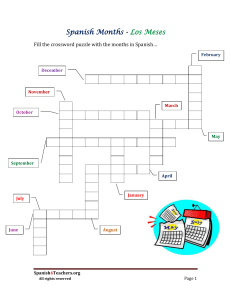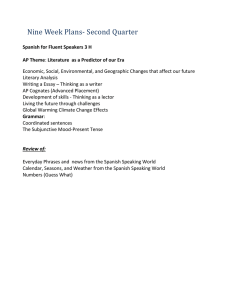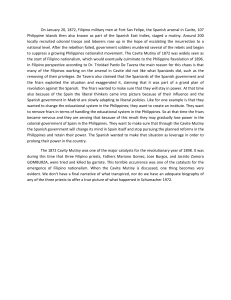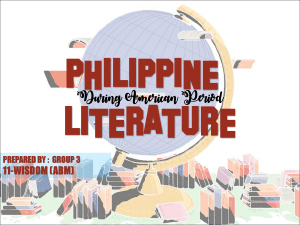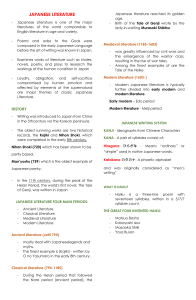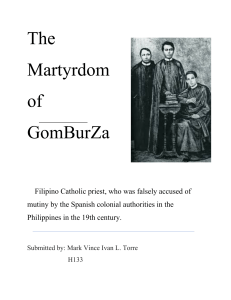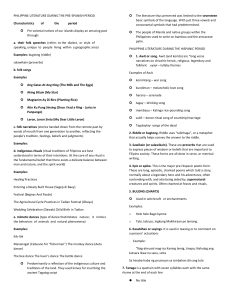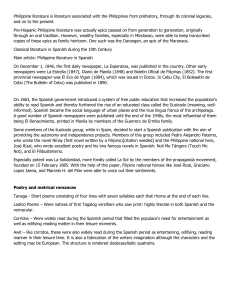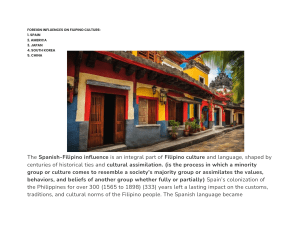Philippine Literature Learning Task: Mind Mapping & History
advertisement
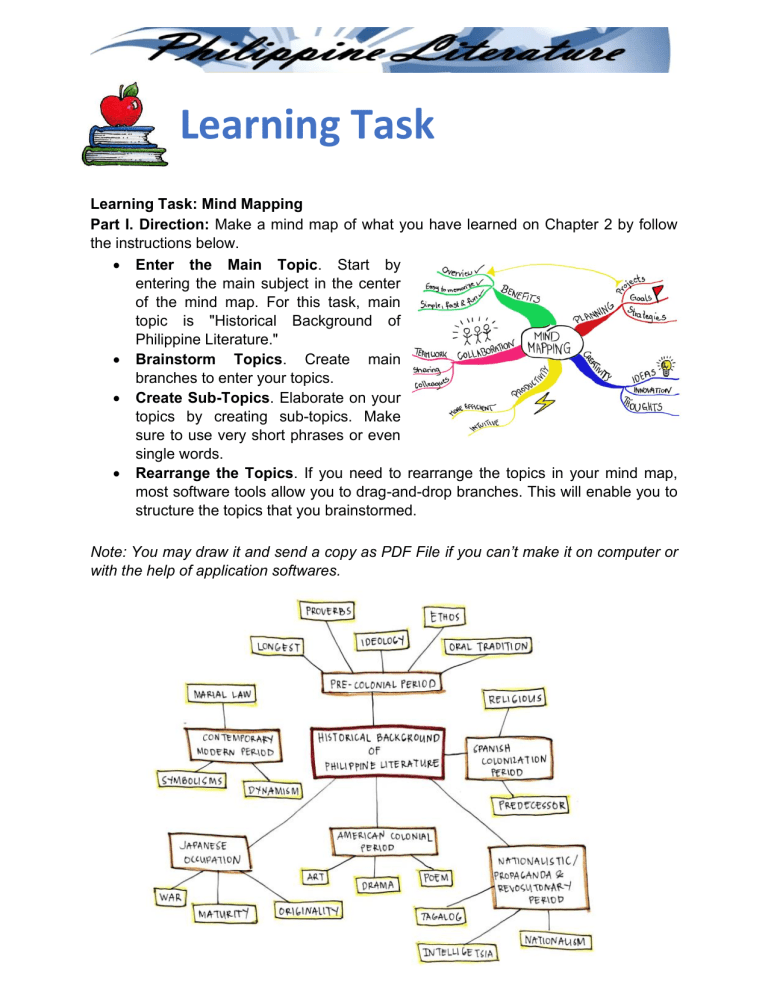
Learning Task Learning Task: Mind Mapping Part I. Direction: Make a mind map of what you have learned on Chapter 2 by follow the instructions below. • Enter the Main Topic. Start by entering the main subject in the center of the mind map. For this task, main topic is "Historical Background of Philippine Literature." • Brainstorm Topics. Create main branches to enter your topics. • Create Sub-Topics. Elaborate on your topics by creating sub-topics. Make sure to use very short phrases or even single words. • Rearrange the Topics. If you need to rearrange the topics in your mind map, most software tools allow you to drag-and-drop branches. This will enable you to structure the topics that you brainstormed. Note: You may draw it and send a copy as PDF File if you can’t make it on computer or with the help of application softwares. Part II. Direction:Put your ideas into paragraphs equivalent of 10 sentences. ➢ Literature in the pre-colonial period was founded on oral traditions. On ideology, it hasn't been fine-tuned yet. phraseology. It was passed down orally and had a community authorship, which meant it was difficult to verify. trace the author's identity because oral literature did not place a premium on ownership or copyright, but rather on the content. storytelling in and of itself It is divided into two categories during the Spanish colonization period: religious and secular. It Spanish was introduced as a communication medium. Early Filipino writing was influenced by religion, which became a major theme. Nationalism was planted in Filipinos during the Nationalistic/Propaganda and Revolutionary Periods. The language was changed from Spanish to Tagalog, and the "intelligentsia" was replaced with the "masses." Filipino writers imitated English and American models throughout the American Colonial Period. The poetry produced was amateur and mushy; it was awkward and artificial. The English language was thereafter adopted as the standard for writing and instruction in schools. By this time, the Spanish word "sarsuwela" had been renamed drama. During the Japanese occupation of the Philippines, Filipino poets abandoned the Balagtas tradition in favor of plain language and free verse. Poetry has lost ground to fiction. In the modern era, martial law has hampered human rights, particularly journalistic freedom. They rely solely on symbolism. From the 1980s until the present, writers have demonstrated dynamism and originality.
